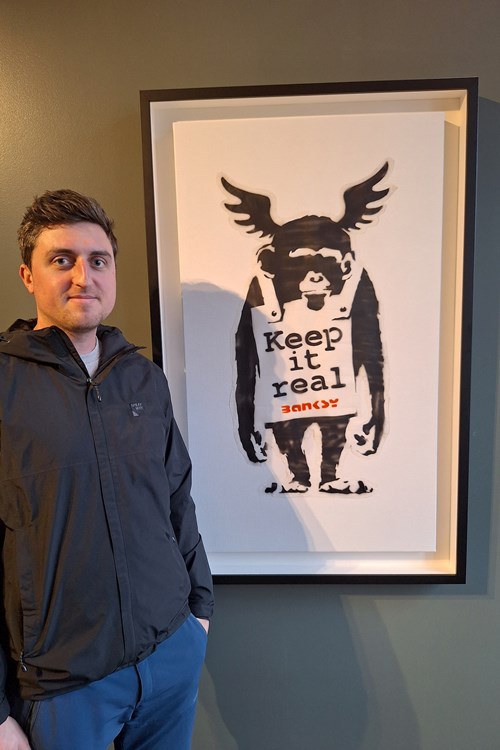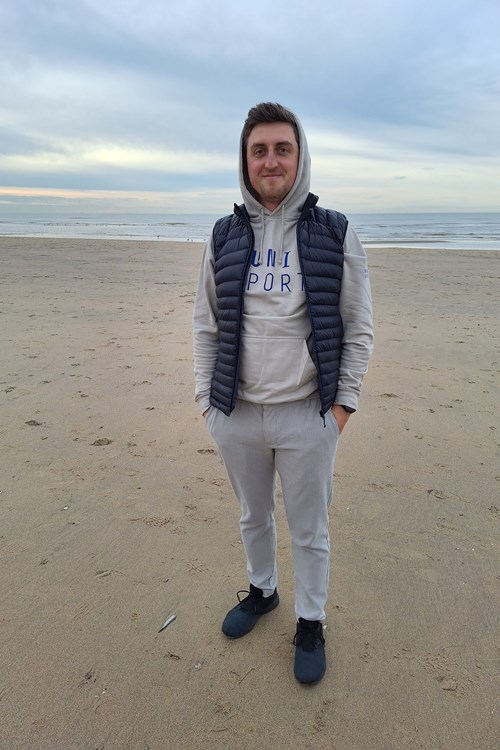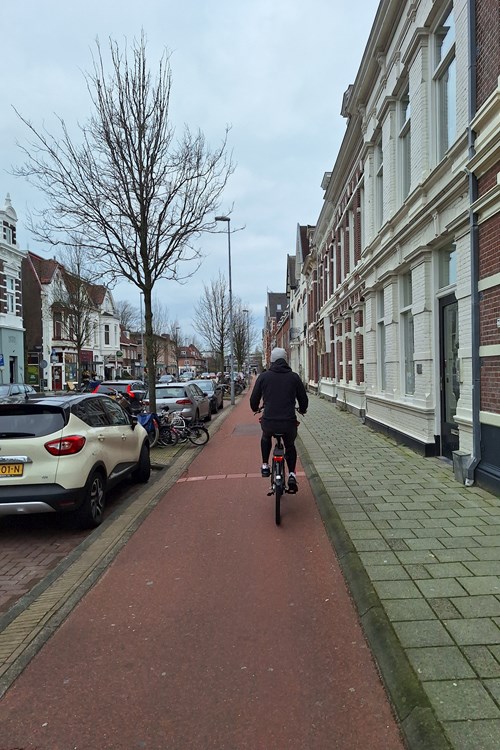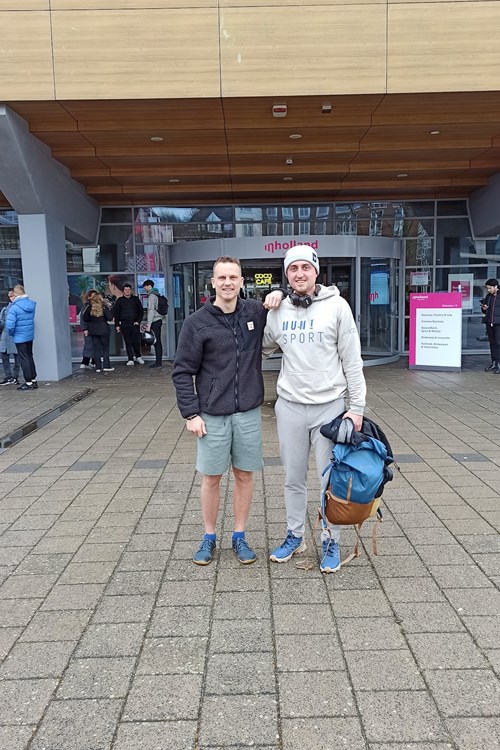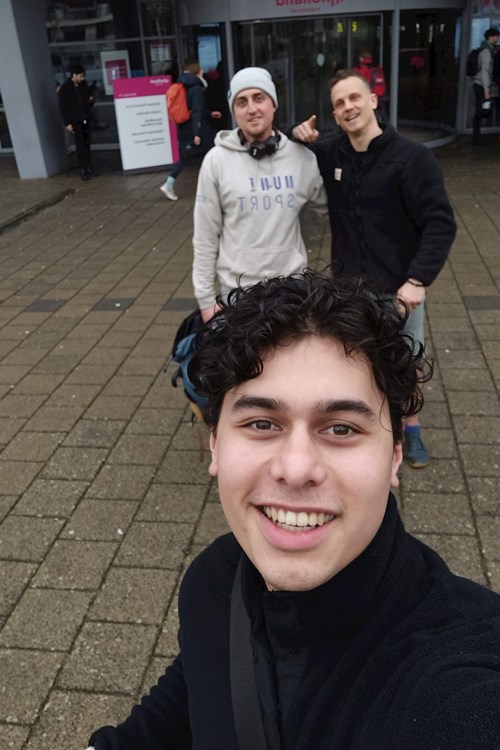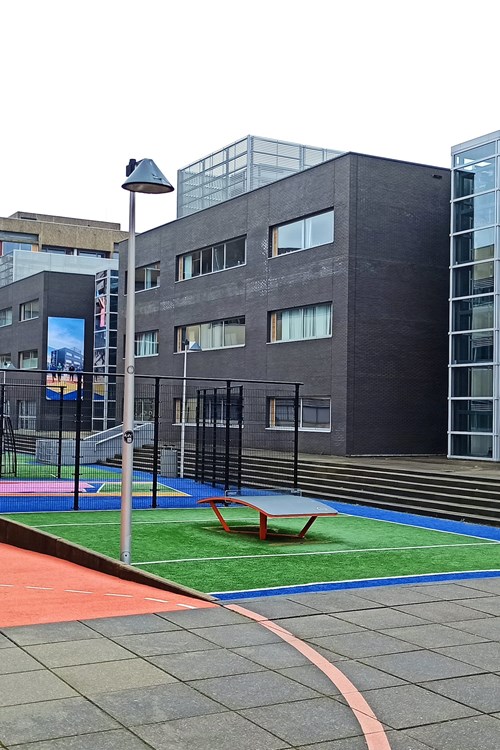
Academic mobility allows us to learn abroad
In the last week of the autumn exam period, Dr. Tomáš Hlinský from the Department of Sport Performance and Exercise Testing visited the Dutch Hogeschool Inholland – University of Applied Sciences in Haarlem, where he gave several workshops on nutrition for students studying sports science.

"I consider Erasmus+ Teacher Mobility a great opportunity to travel abroad, visit a partner university, and meet new colleagues and students. At the same time, this form of mobility represents an important professional experience in the field of English language development, sharing good practice in the field of scientific research and teaching or internationalization and making important contacts for future cooperation. It was very interesting to share experiences and knowledge of nutrition and nutritional practice in working with the general population or athletes with Dutch colleagues and students, to respond to their questions, and to develop discussions on topics related to the role of nutrition in human health, the historical and evolutionary context of nutrition, food processing and cooking skills in relation to diet quality or supplements, and many other topics. Positive feedback for me was the great interest of the learners in these topics at first sight and the discussions beyond the allocated teaching time even after the workshops.
It was very pleasant to see the functionality of the concept of learner-centered rather than teacher-centered teaching in a very flexible environment (the move away from frontal teaching has been a long-standing experience at this university). Many of the teaching rooms were not designed with a classical arrangement of desks in front of a teaching board (resembling an auditorium), but there were different shapes of tables freely in the space allowing learners to sit in a circle in smaller groups. Blended learning, which combines the introduction of the topic and explanation of the basic concepts (from teacher to learners) with project-based learning (student group work) followed by whole-group discussion of the group work outcomes, was the most common form of instruction. Teaching was therefore exclusively in the form of seminars, combining aspects of lecture and practical seminar teaching. Efforts to incorporate this form of teaching into our setting have been discussed for some time and it is an element planned for the new curricula being developed. Hearing how this approach works in many Western and Nordic countries from my colleagues has long been a strong motivation to incorporate this way of teaching here. However, seeing first-hand how this approach works in practice, and especially talking directly to those involved, was a nice confirmation that we are on the right track in our plans and are not making a mistake in trying to implement this way of teaching in our current curricula. My stay at the University of Haarlem was accompanied by Kris Zwemmer (pictured left) and his approach to teaching, in which he favors the flipped classroom method, was also a very motivating moment, where the student orientation was even more emphasized. It was great to observe the competencies of the local students acquired through this teaching concept - the ability to communicate, work and cooperate in a group, think critically about the problem, study the issue independently, provide a proposed solution, and present it in front of the class, or discuss comments and questions.
Teacher mobility also offers the opportunity to get to know a foreign country better. So I couldn't resist trying out the cycling culture by cycling to the seaside town of Zandvoort. A visit to the nearby capital city of Amsterdam and its museums such as the Rijksmuseum, where Rembrandt's Night Watch is on display, or the Moco Museum, where some of the artist Banksy's works are currently on display, was not to be missed. For local cuisine, try the meat (called Bitterballen) and mushroom croquettes, fermented vegetables, the ubiquitous Belgian fries, seafood dishes, or the local beer straight from Haarlem, which favors the now popular top fermentation.
In conclusion, we can only encourage all those who would like to take advantage of the teacher mobility opportunity. If you are even slightly considering visiting a foreign university, then I highly recommend taking advantage of the Erasmus+ support. These are unforgettable experiences and opportunities to create new partnerships and friendships abroad."
Mgr. Tomáš Hlinský, Ph.D.
